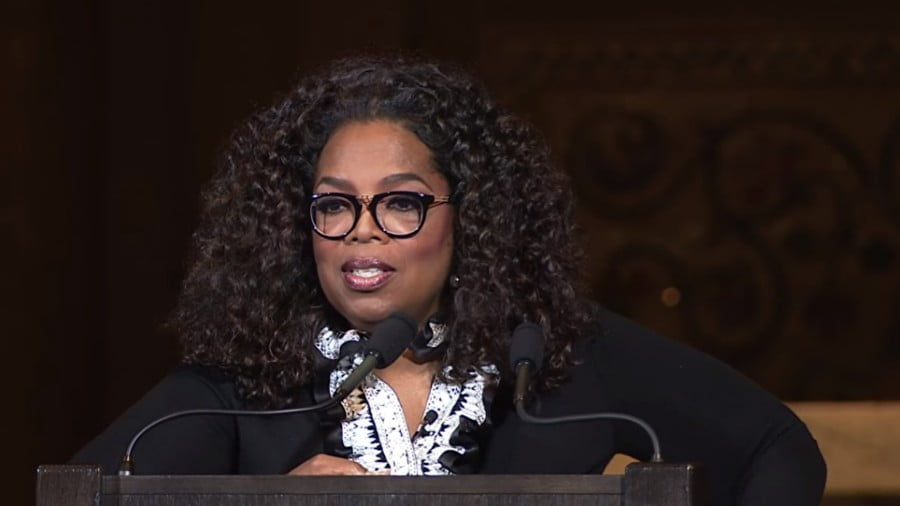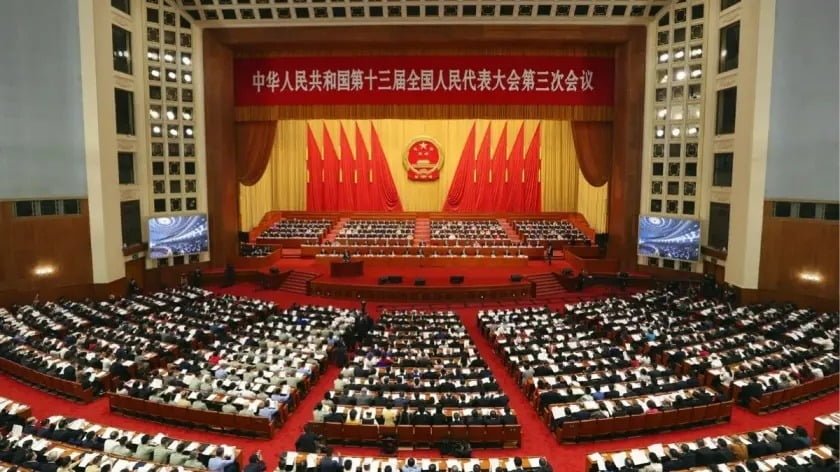Hariri’s Capture Was Instrumental to the “Red Prince’s” Rise to Power
Crown Prince Mohammed Bin Salman forced the resignation of Lebanese Prime Minister Saad Hariri and subsequently detained him not just to destabilize Lebanon, but because the foreign leader is a dual-Saudi national who was plotting against the future King and could have granted “political asylum” to fleeing royals eager to one day exact their revenge on the “Red Prince”.
Mohammed Bin Salman’s “deep state” coup has taken the world by storm and is becoming one of the most geopolitically disruptive events in the Mideast’s recent history. The author wrote about this in four separate articles that the reader is encouraged to skim through if they’re not already familiar with his interpretation of what’s happening:
* Mohammed Bin Salman: The Unlikely Anti-Oligarchic Bolshevik?
* Mohammed Bin Salman’s Post-Coup Bellicose Strategy, Bluff or Bluster?
* Saudi-“Israeli” Leaks: Collusion Or Opportunism?
* From Feudalism To The Future: How the “Red Prince’s” “Revolution” Could Modernize The Monarchy
The general idea is that the Crown Prince preemptively moved to thwart a pro-US royalist coup against him in response to the socio-economic and religious reforms that he initiated with his Vision 2030 program, as well as in retribution for his daring game-changing Great Power partnerships with China and Russia. Mohammed Bin Salman is also a “Red Prince” in the sense that his anti-oligarchic and Bolshevik maneuver (in terms of strategy and tactics, respectively) could seize upwards of $800 billion and redirect it to massive public works projects associated with his Vision 2030 plan to transform his feudalist state into a capitalist node along China’s New Silk Road, albeit one of the most important in the Eastern Hemisphere due to its tri-continental location at the crossroads of the Afro-Eurasian pivot space.
In order to advance his grand strategic plan to save Saudi Arabia from itself by reversing its declining revenue, transition its oil-dependent economy into a real-sector one, and stave off the rising threat of a generational conflict between his majority-youthful and relatively “liberal” population and the Kingdom’s conservative and more religious “old guard”, the “Red Prince” had to absolutely eliminate all threats to his future kingship first, ergo why he commenced his “deep state” coup over the weekend. As part of this complex operation, Mohammed Bin Salman also needed to prevent any royal “fugitives” and their supporters from seeking safety elsewhere in the region to plot their comeback, and it’s here where Lebanon and in particular its former Prime Minister Saad Hariri come into play.
The former Lebanese premier is a dual-Saudi national, and it’s very likely that he was involved in the pro-US royalist plot to unseat the “Red Prince”, hence why Mohammed Bin Salman decided to eliminate him as a political threat. Much has already been written about how unprecedented it is for a foreign head of state to resign while visiting a supposedly allied country, and lots of reports have circulated that this was actually done under duress and that Hariri is being held prisoner in Saudi Arabia, but these stories tend to downplay the fact that the former Lebanese Prime Minister is a dual-Saudi citizen, and therefore subject to its laws while on its soil. This means that if he was implicated in the plot to unseat Mohammed Bin Salman, then the “Red Prince” technically has every legal right to take action against him, even if it’s executed under the guise of an anti-corruption campaign.
There’s admittedly a very grey line involved here because of how unique the whole affair is, but at the end of the day, whether Hariri was a head of state or not, his status as a dual-Saudi national takes precedence in the Kingdom’s laws over his foreign statesmanship. Moreover, just like what can be presumed to be the case for most – if not all – of the wealthy people in Saudi Arabia, Hariri probably obtained his fortune through some degree of corruption. To clarify, corruption in this case isn’t be used to refer to backroom deals with decision makers in obtaining government contracts (which is the social norm in Saudi Arabia despite being legally regarded as corruption in most Western societies), but to exploiting these said deals through some form or another of deception (e.g. charging more than previously agreed upon for a good or service, or not even providing it at all after receiving payment) in order to gain greater profits.
It can only be speculated at this time what sort of corruption Hariri may or may not have been engaged in, but it’s becoming increasingly evident that the former Prime Minister was caught up in Mohammed Bin Salman’s “deep state” dragnet and that this is probably the real reason behind his resignation. The collateral damage from this event runs the risk of destabilizing Lebanon, which has traditionally been a proxy battleground between Saudi Arabia and Iran, though that’s probably not why the “Red Prince” demanded the premier’s resignation. Like it was mentioned above, it’s more than likely due to Hariri’s alliance with an anti-Salman royal clan conspiring to overthrow Mohammed Bin Salman and replace the Crown Prince with one of their own instead. The “Red Prince” knew that it would be a step too far – even for him – to openly carry out a regime change against a foreign head of state simply because the said individual was plotting against him, which is why he had to resort to superficially indirect methods.
Therefore, Mohammed Bin Salman must have found one way or another to implicate Hariri in the Kingdom’s far-reaching anti-corruption dragnet (which itself is largely being used as a populist smokescreen for justifying the “Red Prince’s” power grab and redistribution of oligarchic resources to his socio-economic Vision 2030 programs) so as to have a semi-plausible pretext before international law for detaining the former Lebanese Prime Minister, who, for the sake of “legal technicalities”, was probably detained only after he was pressured to resign and “officially” become a private dual-Saudi citizen without any “diplomatic immunity” as a head of state. Hariri’s capture was central to Mohammed Bin Salman’s plans because it prevented Lebanon from becoming a base for any “fugitive” royals and their supporters who might have fled the Kingdom to regroup elsewhere in the region while plotting their revenge.
If Hariri, as a dual-Saudi national opposed to Mohammed Bin Salman and doubling as the Lebanese head of state, offered sanctuary to “political refugees” fleeing the Kingdom after their failed coup plans went awry, then the “Red Prince” would forever face a threat to his rule from the royals hiding out in Lebanon. The reader shouldn’t lose sight of the fact that Lebanon has traditionally been a “playground” for the Saudi elite because its comparatively more liberal social situation allows the “weekday Wahhabis” to engage in such “haram” weekend activities as extramarital sex and alcohol consumption, so many of the country’s elite should rightly be presumed to have cultivated extensive contacts and influence here throughout the years, which is why they’re more than likely to have wanted to use Lebanon as their “base of operations” for plotting a comeback against the future King.
That scenario is now foiled, however, because Mohammed Bin Salman pressured Hariri to resign and is now likely holding him captive at the Rizt Carlton alongside the other detainees. The Lebanese government announced that it won’t react to Hariri’s resignation until he returns back to the country to explain what’s going on, but that’s probably only going to increase the odds that the “Red Prince” won’t let him leave. The last thing that the young leader needs is for Hariri to return back to Lebanon, denounce the “deep state” inquisition that the anti-oligarchic “Red Prince” is carrying out, and offer up his country’s territory to any “fugitive” royals and their supporters who want to fight back against him and regain their power. Worse still, Mohammed Bin Salman might fear that Hariri could deepen his working relations with Iranian-backed Hezbollah, which would essentially represent yet another major geopolitical fail by making Saudi Arabia “lose” Lebanon just like it irresponsibly “lost” Qatar nearly half a year ago because of the “Red Prince’s” impetuousness.
It’s perhaps due to this tacit realization that even some of Hariri’s opponents are feigning concern about his fate and all of a sudden supporting him on a “patriotic” basis by condemning the Saudis’ forced resignation of their head of state and his subsequent detainment. These individuals might have cursed Hariri a week ago and prayed for his downfall or worse, but now that he’s out of office due to the circumstances of Mohammed Bin Salman’s “deep state” coup – who they arguably hate more than Hariri because the future King is more powerful and has much more blood on his hands – Hariri is basically being heralded as a “martyr” of Lebanese statehood, and people who would never have previously thought to defend him are rushing to offer up their condemnation of the “Red Prince”.
This Machiavellian power reversal carries with it a certain logic, because if Hariri is released and allowed to return to Lebanon, then it might turn against his Crown Prince captor and side more closely with his Iranian rivals out of spite. Should his resignation be declared invalid because it was tendered under duress, then Hariri might be reinstituted as Prime Minister and therefore allowed to grant “political asylum” to any “fugitive” “rebel royals” and their supporters, thus turning the Hezbollah-controlled country into a base of regime change operations against the “Red Prince” and representing a game-changing development in the regional Saudi-Iranian rivalry. That’s probably why Mohammed Bin Salman won’t let him go anytime soon, though, and might even see to it that Hariri suffers an “accident” just like Prince Mansour Bin Muqrin did a few days ago when his helicopter went (or was shot?) down over the country’s southern desert and killed everyone on board who tried to flee from the “deep state” coup.
By Andrew Korybko
Source: The Duran







